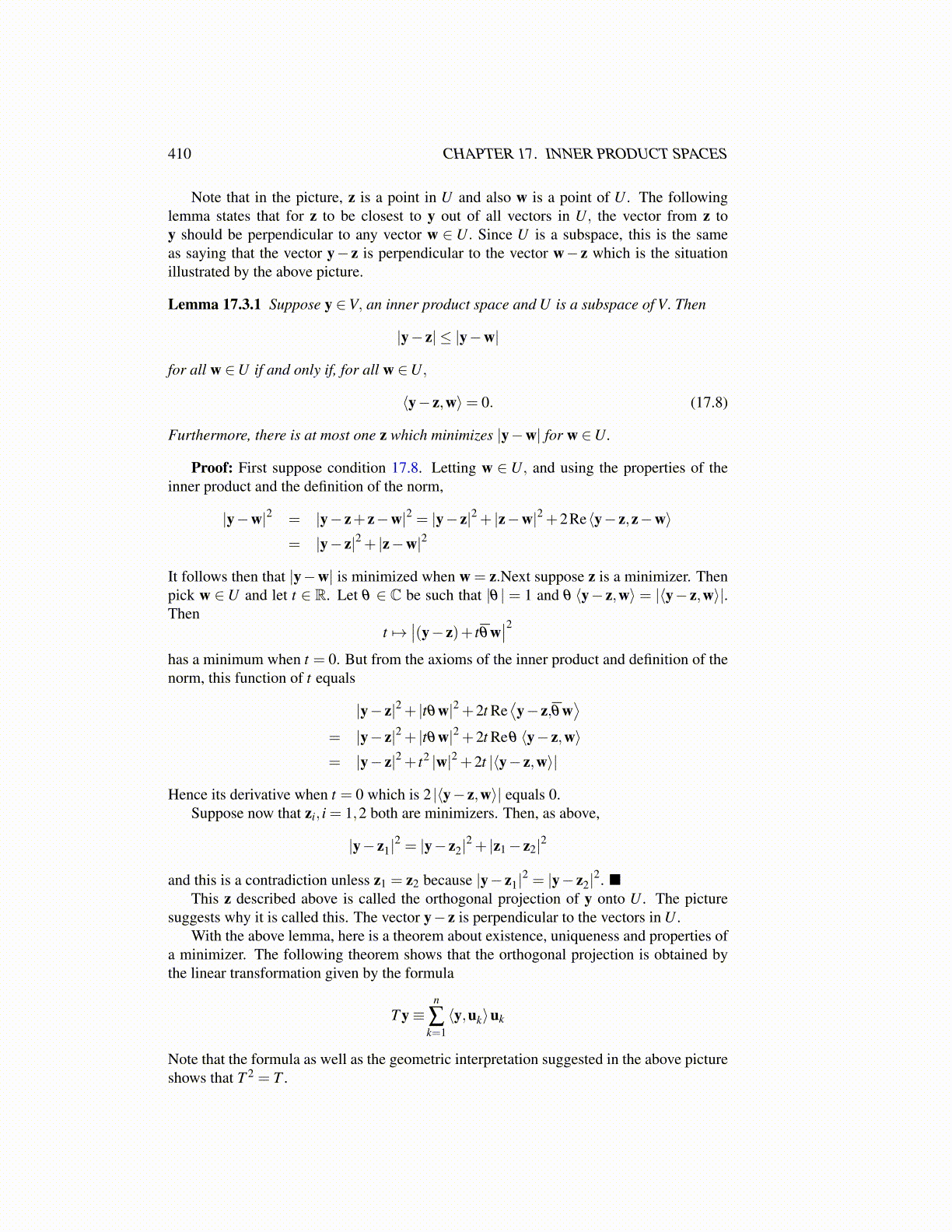
410 CHAPTER 17. INNER PRODUCT SPACES
Note that in the picture, z is a point in U and also w is a point of U . The followinglemma states that for z to be closest to y out of all vectors in U, the vector from z toy should be perpendicular to any vector w ∈ U. Since U is a subspace, this is the sameas saying that the vector y− z is perpendicular to the vector w− z which is the situationillustrated by the above picture.
Lemma 17.3.1 Suppose y ∈V, an inner product space and U is a subspace of V. Then
|y− z| ≤ |y−w|
for all w ∈U if and only if, for all w ∈U,
⟨y− z,w⟩= 0. (17.8)
Furthermore, there is at most one z which minimizes |y−w| for w ∈U.
Proof: First suppose condition 17.8. Letting w ∈ U, and using the properties of theinner product and the definition of the norm,
|y−w|2 = |y− z+ z−w|2 = |y− z|2 + |z−w|2 +2Re⟨y− z,z−w⟩= |y− z|2 + |z−w|2
It follows then that |y−w| is minimized when w = z.Next suppose z is a minimizer. Thenpick w ∈U and let t ∈ R. Let θ ∈ C be such that |θ | = 1 and θ ⟨y− z,w⟩ = |⟨y− z,w⟩|.Then
t 7→∣∣(y− z)+ tθw
∣∣2has a minimum when t = 0. But from the axioms of the inner product and definition of thenorm, this function of t equals
|y− z|2 + |tθw|2 +2t Re⟨y− z,θw
⟩= |y− z|2 + |tθw|2 +2t Reθ ⟨y− z,w⟩= |y− z|2 + t2 |w|2 +2t |⟨y− z,w⟩|
Hence its derivative when t = 0 which is 2 |⟨y− z,w⟩| equals 0.Suppose now that zi, i = 1,2 both are minimizers. Then, as above,
|y− z1|2 = |y− z2|
2 + |z1− z2|2
and this is a contradiction unless z1 = z2 because |y− z1|2 = |y− z2|
2. ■This z described above is called the orthogonal projection of y onto U . The picture
suggests why it is called this. The vector y− z is perpendicular to the vectors in U .With the above lemma, here is a theorem about existence, uniqueness and properties of
a minimizer. The following theorem shows that the orthogonal projection is obtained bythe linear transformation given by the formula
T y≡n
∑k=1⟨y,uk⟩uk
Note that the formula as well as the geometric interpretation suggested in the above pictureshows that T 2 = T .